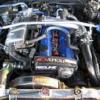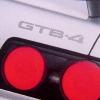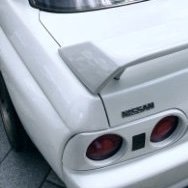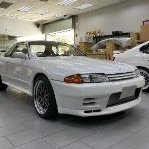R32 Makes Dosing Type Noise And Engine Turns Of When I Turn Aircon On
Announcements
-
Similar Content
-
Latest Posts
-
Well, back in the day..... "race" fluids, which were essentially only really "high temp" fluids, used to absorb water more readily. So they really needed to be changed more often anyway. The coincidence of that being directly necessary along with it being what racers would do as a matter of course was just fine.
-
By soviet_merlin · Posted
Does the high temp fluid degrade any different over time compared to normal one? That's one thing I've always been wondering. Because a track car is going to get the fluid flushed probably way more often than every two years and will see less kilometers driven. I would think the requirements are different. I'm running Motul RBF 600 in mine. Was recommended by my mechanic before a trackday and I've stuck with it since. Hasn't seen the track since but I've kept buying and using it for servicing anyway. -
The brakes are all stock bar some DBA slotted discs and the EBC pads and braided lines. The car has brake ducts as standard but they're kinda pointed in the general direction of the brakes rather than really getting at the heat source. I guess I should hit it with an infra red thermometer after a session and see what they're at. 100%! Its just a curiosity more than anything. As I said, high temp brake fluid was such a track day rage back in the day. From people I speak to at the track and threads on here everybody has their own take on it but I'm not gonna scoff at spending a few more bucks. OH, a quick side question - would you use brake fluid from an opened container even if the lid has been on? Eg, if you have a bottle that you opened last time you flushed, it's been tightly closed, is it still good?
-
Nice, is there a post with the new 4" dyno curve?
-
The brakes are all stock bar some DBA slotted discs and the EBC pads and braided lines. The car has brake ducts as standard but they're kinda pointed in the general direction of the brakes rather than really getting at the heat source. I guess I should hit it with an infra red thermometer after a session and see what they're at. 100%! Its just a curiosity more than anything. As I said, high temp brake fluid was such a track day rage back in the day. From people I speak to at the track and threads on here everybody has their own take on it but I'm not gonna scoff at spending a few more bucks.
-









Recommended Posts
Create an account or sign in to comment
You need to be a member in order to leave a comment
Create an account
Sign up for a new account in our community. It's easy!
Register a new accountSign in
Already have an account? Sign in here.
Sign In Now